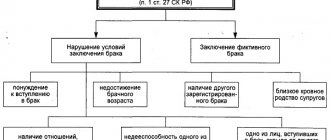What penalties are provided for illegal entry into a home? This kind of offense happens very often. But, despite the laws, it is not always punished. In judicial practice, there are sometimes situations where illegal entry into a home is completely ignored. But more on that a little later. What is the penalty for our violation today? What to expect when invading someone else's territory?
Home concept
What is a home? Without understanding this definition, it is impossible to continue discussing today's topic. After all, illegal entry into a home implies an invasion of a particular territory. What exactly are we talking about?
Dwelling is generally understood as any place suitable for living. This is where the citizen lives. Regardless of who owns the property. The home can be, for example, a relative’s or personal apartment, rented housing or official housing.
It turns out that any place where a citizen lives is his home. And everyone has the right to its inviolability. Otherwise, the violator is often subject to appropriate punishment. But which one?
What is private territory?
There is no concept of “private territory” in Russian legislation, but this expression refers to real estate that is registered as the property of an individual or non-governmental organization. This role can be played by a residential apartment, a non-residential warehouse or basement in an apartment building, a plot of land, both with and without residential buildings, and so on.
Evidence of the legal authority of the owner is a certificate of ownership and other supporting documents. If we are talking about a land plot, its cadastral number must be assigned to a specific person. The presence of a fence is not necessary to prove its ownership by a given entity. But this fact is important for understanding the boundaries of the territory by participants in legal relations.
If the site is not surrounded by a fence or other type of fencing, and the owner has not indicated in any way his reluctance to see strangers on this territory, anyone can walk on the land. This action is not considered an offense.
The onset of a specific type of legal liability depends on the type of object whose boundaries have been violated. The right of ownership in the general legal sense is protected by Article 209 of the Civil Code of the Russian Federation.
Land allotment, as a subject of regulation, is discussed in Chapter 17 of this normative act. But the law says nothing about what to do in case of violation of the right to land. This is the main difficulty of the mechanism for implementing the protection of the victim.
The inviolability of the home is regulated more carefully. This is one of the constitutional principles of our state. Its violation is a crime against human rights and freedoms, and not an economic crime, as in the situation with land allotment.
Criminal Code
According to the Criminal Code, illegal entry into a home is punishable by criminal law. True, in different cases it is necessary to use various measures that differ from each other. To know exactly how to legally protect your home, you need to refer to Article 139 of the Criminal Code of the Russian Federation. She is responsible for violations in the form of illegal entry into a home.
The first part examines the simplest situation - when someone invades your territory against your will. Here you can get off with the most common fine. But in different sizes. Sometimes compensation for moral damage occurs, but this decision is made by the court and is not taken into account in the article.
The fine issued for illegal entry into a home (Criminal Code of the Russian Federation) will be up to 40,000 rubles. Payments can also be expressed in the form of any income of the offender (for example, salary) for a period of no more than 3 months. In principle, not too serious a punishment.
On the way to correction
But that is not all. Indeed, Part 1 of Article 139 of the Criminal Code of the Russian Federation also states that in case of illegal entry into a home against the will of the resident, various types of public works can be assigned. In this case, no fine is issued; the defendant will “work off” the punishment for a certain period of time.
Mandatory work in this case can last up to 15 days. This norm is established by law. That is, for illegal entry into someone’s home, you can perform mandatory work for a maximum of 360 hours. And after that be free.
Correctional labor is also ordered by the court in such a situation. The maximum period here can reach 12 months. This is also not the harshest punishment available in the Criminal Code. Illegal entry into a home, as already mentioned, is not so rare. And sometimes you have to put up with more serious consequences for it.
Prisoners
The arrest also has legal force in this case. In court, this type of punishment for illegal entry into a home is very often encountered. True, the arrest period for such a violation is not too long.
The maximum allowed by law is 3 months. If someone has illegally entered your property, you have the right to go to court and demand the arrest of the culprit. For a maximum of 3 months. The exact date will be determined during the trial. If there are aggravating circumstances, of course, it can be increased. This practice occurs frequently.
Legitimate reasons for entry
The state has established rules on legal home invasion based on regulations by the following entities.
Law enforcement officers. They can visit private households without permission in cases provided for by the provisions of the Law “On the Police”.
Thus, an invasion of private property under Article 15 can be carried out when:
- A police officer enters the owner’s home without his consent in the event of clarification of the circumstances of a special incident or accident.
- In case of a threat to the lives of citizens located in the premises, as well as a threat of damage or destruction of real estate or movable property of citizens.
- In case of emergencies (emergency situations) and resulting riots and pogroms.
- If there is operational information about the hiding of persons suspected and accused of a crime there and the suppression of the crime without delay.
Thus, law enforcement officers have the most extensive list of grounds for legal and unhindered access to residential premises.
There is a rule that police cannot break - this is addressing citizens in a degrading manner.
Firefighters and employees of the Ministry of Emergency Situations. In the event of a fire or other difficult domestic situation that can only be resolved by special entities, it is necessary to understand that their powers to enter a house or apartment without permission are conditioned by the immediate relief of harm.
When breaking doors by such entities, you need to know that these actions must be recorded:
- representatives of housing and communal services;
- local police officer.
After a “visit” by these entities, the premises must be sealed by the district police officer, and representatives of the management company or HOA must draw up a corresponding act.
Representatives of the management company or companies servicing housing and communal services. The grounds for entry into housing for this category of subjects occur at the moment the court makes a decision to evict unscrupulous tenants of residential premises. If all payments are late, housing and communal services representatives are forced to go to court to issue an eviction order.
They evict persistent defaulters, rowdy people or those who cause harm by violating the integrity of the residential premises when used for other purposes and not in accordance with the terms of the social tenancy agreement (for example, renting out a warehouse or engaging in business activities in it).
Bailiffs. They are the last on the list of subjects who enter a home without the will of the owner. Their actions, as in the previous example, are aimed at fulfilling the court decision.
However, the legislator does not give them expanded powers, since it obliges them to warn about the visit and the purpose of the visit.
Threats of violence
Responsibility for illegal entry into a home is inevitable. More severe penalties are provided for in Part 2 of Art. 139 of the Criminal Code of the Russian Federation. Here we are talking about an act committed with threats of violence or the direct implementation of violence.
In this case, you can still “get off” with a fine. Only its size will increase significantly - up to 200,000 rubles. Or it is issued in the amount of the income of the accused of a crime for 1.5 years. In principle, it is also tolerable.
In reality, sanctions of this kind are rarely used. Most often, when threats or direct violence accompany illegal entry into a home, they try to resort to more serious “education” measures. Which one exactly?
Examples of situations from judicial practice involving home invasion
Example 1 . A certain citizen Skvortsov I.V. illegally entered a neighbor’s apartment through an open door and stayed there for 3 hours. The neighbor in her haste forgot to close the door, so her neighbor entered her home without hindrance. It happened like this: the man was walking home drunk, but he couldn’t get into his room - his wife wouldn’t let him in. Then he saw an open door in his neighbor’s apartment and entered it. In an unfamiliar apartment, the man continued the banquet: he drank alcohol, had a snack and went to bed. When the neighbor returned home, she found that the door to her apartment was locked from the inside. She called the police, they came and took the neighbor away. The woman sued him. The judge sentenced the unfortunate neighbor to a fine of 30 thousand rubles for illegal entry into the home against the will of the owner of the apartment.
Example 2 . Citizen Petrov V.K. was convicted of a crime under Art. 139 of the Criminal Code of the Russian Federation. Being intoxicated, this man decided to visit his neighbor and talk to her, but she refused to open up to him. Outraged by her inhospitality, he forcefully pulled the door handle, broke the bolt and the door opened. Petrov V.K. entered his neighbor’s apartment without her permission, thereby violating her right to the inviolability of private territory. The judge sentenced V.K. Petrov to compulsory labor for a period of 360 hours.
Example 3 . A certain investigator Pupkin A.A. secretly from the owner of the apartment entered it without a warrant. The purpose of his penetration was to search for evidence. The investigator was unlucky, because at the moment when he was in the house of the owner of the apartment, V.K. Mikhailov, he unexpectedly came home. The owner of the home immediately called the police and filed a report about trespassing on private property. Mikhailov V.K. filed a statement of claim against investigator Pupkin A.A. The judge granted his claim and punished the investigator with a ban on him engaging in his previous activities, and also imposed a fine on him in the amount of 100 thousand rubles.
Statute of limitations under Art. 139 of the Criminal Code of the Russian Federation
Trespassing onto private property is a minor crime. The statute of limitations for such a crime is 2 years.
Therefore, if an attacker entered a house (apartment), and the owner of the premises decided not to contact the police, but the actions of the criminal are repeated, then the owner has the right to contact the police or the prosecutor’s office and write a statement.
Unfortunately, in Russia as of 2021, legislation only protects housing for illegal entry into private territory.
But there is no penalty for entering another part of the house (for example, into the yard, veranda, etc.).
Home owners need to independently protect their homes from invasion by ill-wishers: put up fences, hire security guards, install an alarm system.
For entering someone else's house, the offender faces Art. 139 of the Criminal Code of the Russian Federation.
Average degree
For example, forced and correctional labor. They also occur in a similar situation. True, unlike ordinary illegal entry, the penalty period increases.
Now compulsory community service can amount to a maximum of 2 years. Exactly the same period is established for correctional sentences. Certain circumstances may influence the court's decision. In some cases, these periods are reduced. But they are also capable of increasing - in the presence of aggravating circumstances.
Please note that arrest is also possible. Only when violence or threats are used when entering someone else’s home will it be greater than with a regular “invasion.” Such an act is punishable by arrest for no more than 24 months. A quite common measure for illegal entry into a home. Judicial practice indicates that in addition (without relying on Article 139 of the Criminal Code of the Russian Federation) moral damages are recovered from the violator. Approximately 200,000 rubles. This is the average that victims request. The court independently assigns compensation for moral damage or satisfies the plaintiff’s request in certain cases.
Penetration of private property: what legislative protection is there in the Russian Federation
Important!
By virtue of the provisions of Art. 35 of the Constitution of the Russian Federation, the right to private property is inviolable. Every subject has the right to be the owner of property and to exercise this right either individually or together with other persons. No one can be deprived of property except by a court decision. Also Art. 25 of the Constitution of the Russian Federation establishes the principle of the inviolability of the home: it is prohibited to invade it against the will of the persons living in it (except in cases regulated by law, or in the presence of a corresponding judicial act).
At the same time, neither the Code of the Russian Federation on Administrative Offenses nor the Criminal Code of the Russian Federation contain special rules providing for punishment specifically for violating private property.
Note! There is currently no separate law on the inviolability of private property in Russia. At the same time, the Constitutional Court of the Russian Federation recognizes the inviolability of private property as one of the principles of civil legislation (Resolution of the Constitutional Court of the Russian Federation dated July 16, 2008 No. 9-P) and a general legal principle (Resolution of the Constitutional Court of the Russian Federation dated June 6, 2000 No. 9-P).
Service
Using your official position for your own selfish purposes is unacceptable. But if this happened to invade someone else’s territory, you should expect serious punishment. Which one exactly? The court will decide.
Most often, the culprit is fired. You could say they are taking away the position. In addition, the law provides for the imposition of restrictions on the conduct of activities of a certain nature, as well as on the opportunity to occupy high-ranking (managerial) positions.
But not forever. There are also limitations. The minimum is 2 years, the maximum is 5. So for illegally entering a home using your official position or authority, you can actually lose your usual job for a long time. A good reason to consider your actions before invading someone's home.
Unlawful entry against will
The objective part of the commission of a crime is illegal entry against the will of citizens living in the given territory. Such a crime can be secret or open. That is, illegal entry into the premises can be committed both in the absence of the owners of the house and in their presence. It should be noted that if a criminal entered private territory by deception or abusing the trust of victims, there will be no crime under the article “Illegal entry into a home.” This is explained by the fact that the victims of their own free will allow the attacker into the premises.
Unlawful entry is considered an intentional crime. The attacker can be any sane citizen over 16 years of age. Persons who used their official position to commit a criminal act may be held accountable.
Illegal entry into premises is characterized by direct intent. That is, when committing a crime, the attacker gives an account of his actions, understands their consequences, as well as the harm that he causes to someone else’s home through his actions.
Highest degree
An attempt to illegally enter a home (as well as the direct implementation of this violation) using one’s official position is a terrible thing. In court it will be punished at the highest level. Often, instead of this measure, a fine is imposed (up to 300 thousand rubles or in the form of the income of the accused for a period not exceeding 2 years).
Forced labor and imprisonment are quite relevant measures to combat offenders. In this case, one should hope that the defendant will be subject to a maximum of similar restrictions lasting up to 2 years. Sometimes even less.
In reality, most often the perpetrator is arrested for 4 months. This is the limit that is set according to Article 139 of the Criminal Code of the Russian Federation. Illegal entry into a home using one's official position rarely results in a long prison sentence. If the culprit did not hold a high-ranking position, then the minimum period of detention (from practice) is 15 days.
Not for all
Now we know what the Criminal Code says regarding our today’s question. Illegal entry into a home is much more common in real life than you might think. But not all cases are heard in court. Statements where relatives become direct participants usually remain in the shadows. The most common case is a visit from parents to their children’s home. Without an invitation. A kind of imposition and encroachment on personal space. These situations are especially aggravated in young families. And they reach their peak when small children appear.
In such cases, it is almost impossible to legally protect yourself and your family and your home. Unless relatives literally take the door off its hinges and break the locks. You will have to act completely independently. You have every right not to allow anyone into your home. Even if the direct owners of the apartment (house) are your parents or other relatives.
Nowadays, young families no longer go to court because of this kind of family behavior. Such illegal entry into a home is rather of a social nature. Therefore, going to the judicial authorities, unless they literally break down your door, is useless. Instead, just keep in mind that you don't have to open it. And if threats and violence are directed at you, try to record it. In this case, you can still count on a trial.







